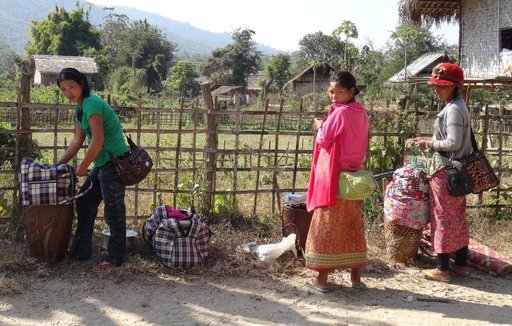In a move that a local politician has said was the first of its kind in Kachin State, the Burmese Army apologised to villagers displaced by recent clashes in Hpakant Township between government troops and the Kachin Independence Army (KIA).
Nearly 200 residents in Hpakant Township’s Kabaw village were forced to flee their homes on 8 and 9 August amid clashes between the Burmese Army and the KIA, and have been taking shelter in Namya village about ten miles away.
On Tuesday, village leader Gaw Lu Saung was beaten up by troops from the Burmese Army’s 108 Light Infantry Battalion (LIB-108) when he was being questioned about KIA activities in the area under the supervision of the unit’s commanding officers.
Dashe La Hseng, a National League for Democracy party member in Hpakant Township, said that Lt-Col Win Ko Chein, commander of the Army’s 66th Light Infantry Division – which oversees the military operations in the region – arrived on Wednesday to apologise to villagers about the fighting.
[related]
“The LID’s commander apologised to the villagers for what his men did and assured them that it is now safe for them to go home,” Dashe La Sheng said, adding that this was the first time villagers in the area – which often sees conflict – have ever received an apology from a Burmese Army commander.
Win Ko Chien also assured the villagers that the two commanding officers of the LIB-108 who oversaw the beating have been punished, and he pledged to cover the medical expenses to treat Gaw Lu Saung’s injuries, Dashe La Hseng said.
This is the second recent case whereby Burmese Army officers used violence and torture against local villagers as an interrogation technique.
Earlier this month in Shan State, a Burmese Army battalion violently interrogated a village chief and community leaders of Namhkam to try and uncover who was responsible for the deaths of two soldiers found dead not far from the village – a move that caused locals to flee Namhkam. After the commanding officers were ordered to halt the interrogation, the division commander assured locals that they were duly punished and transferred out of the region and apologised to the people who were tortured.
This was met with scepticism from a community member who said the transfer was just a short-term solution that does not address the wider, more systemic problem of the Burmese Army retaliating against civilians.



